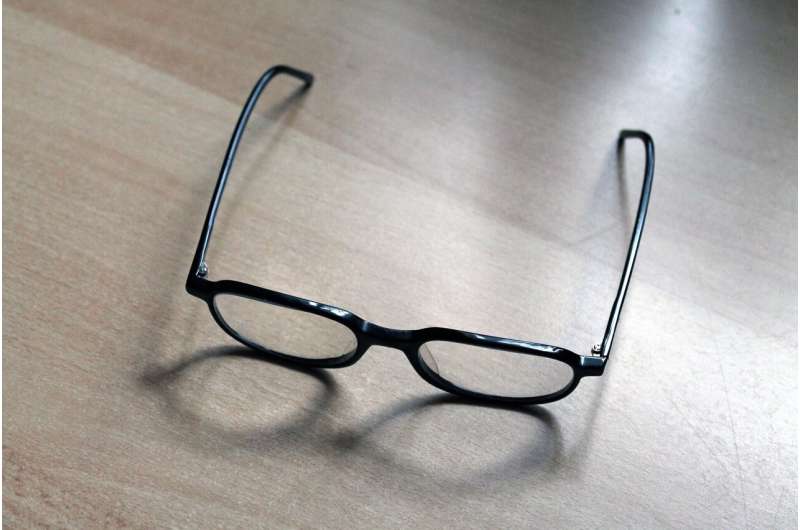
An international team of health workers, vision specialists and sociologists reports that giving reading glasses to people with presbyopia in developing countries can boost incomes. Presbyopia is the leading cause of vision impairment and is usually attributable to aging. In their study, published in the open-access journal PLOS ONE, the group gave hundreds of pairs of reading glasses to people in Bangladeshi villages.
Presbyopia happens to almost everyone as they age, typically starting at around age 50. People begin to notice that they have trouble reading the fine print in newspapers or on medicine bottles. The answer for most is to get reading glasses.
Such glasses are nonprescription—they are essentially magnifying glasses, though they do come in different strengths. Because they are not prescription, they are generally inexpensive—quite often, they can be found on racks at a drug store. Unfortunately, for many people living in developing countries, reading glasses are not available to them as they age.
Prior research has suggested that the development of presbyopia in such places can lead to reduced income or loss of income as many jobs require clear vision. People find they can no longer thread a needle to sew, for example, or remove detritus from rice prior to cooking, or pick tea. In this new effort, the research team wondered what might happen in such villages if someone simply gave them reading glasses.
To find out, they went to 56 villages in Bangladesh, where they found more than 800 adults with presbyopia. Half of them were given reading glasses right away, the other half got them eight months later. They checked back with them several months later and found that income for the group as a whole had risen by approximately 38%—from an average of $35 a month to $47.
They also found that many of the people who had not been able to work were able to rejoin the workforce, helping to provide for their families. The researchers note that the average cost of the reading glasses was U.S. $3 to $4, which, they note, makes for a cost-effective way to improve the quality of life for large numbers of people.
More information:
Farzana Sehrin et al, The effect on income of providing near vision correction to workers in Bangladesh: The THRIVE (Tradespeople and Hand-workers Rural Initiative for a Vision-enhanced Economy) randomized controlled trial, PLOS ONE (2024). DOI: 10.1371/journal.pone.0296115
© 2024 Science X Network
Citation:
Giving eyeglasses to workers in developing countries boosts income (2024, April 5)
retrieved 5 April 2024
from https://phys.org/news/2024-04-eyeglasses-workers-countries-boosts-income.html
This document is subject to copyright. Apart from any fair dealing for the purpose of private study or research, no
part may be reproduced without the written permission. The content is provided for information purposes only.







